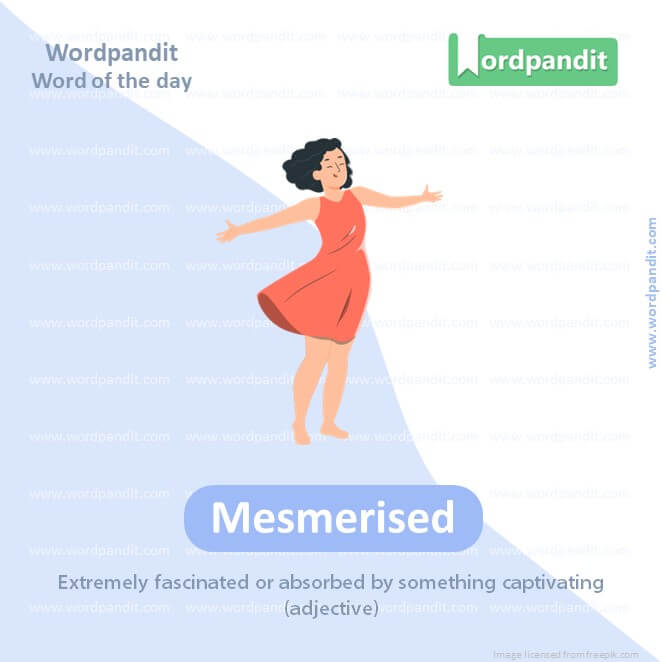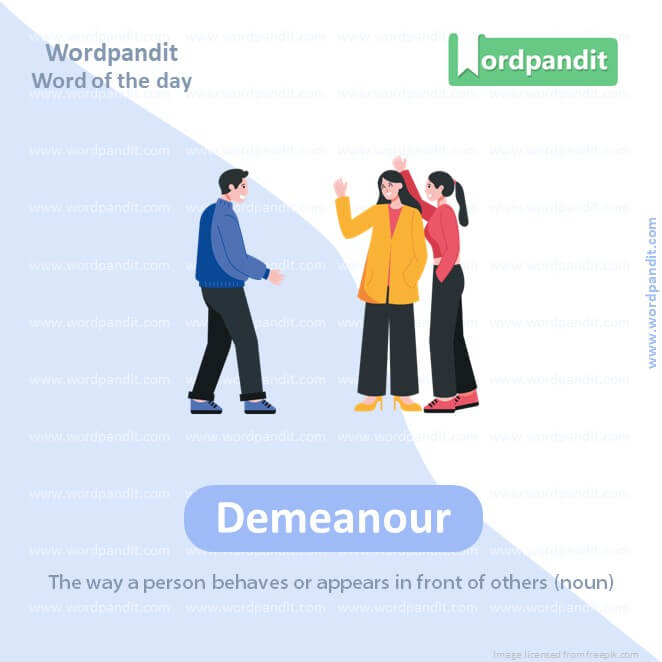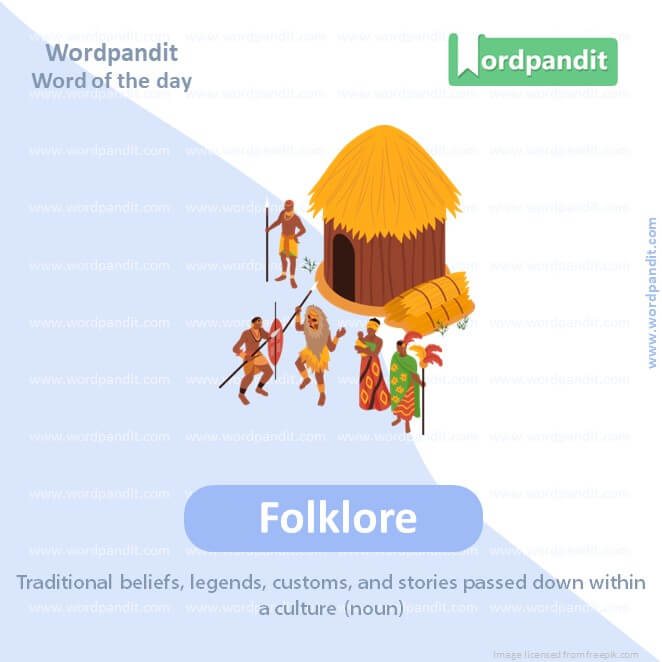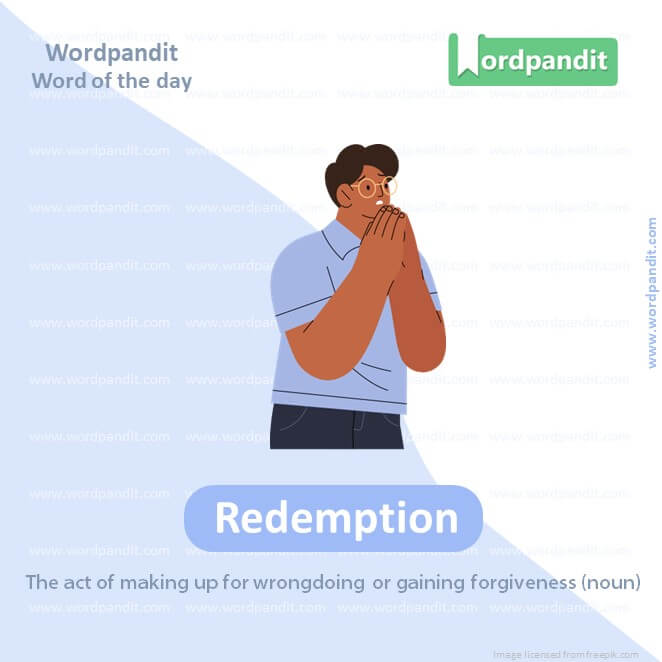Daily Vocabulary Words: List of Daily Used Words in Leading Indian Newspapers
Hi there. Welcome to this special section @ Wordpandit. Our endeavour here is straightforward: highlighting daily vocabulary words that you would come across in leading newspapers in the country. We have included the following newspapers in our selection:
• The Times of India
• The Economic Times
• Hindustan Times
• Mint
• Indian Express
We are putting in extensive work to develop your vocabulary. All you have to do is be regular with this section and check out this post daily. This is your repository of commonly used words; essentially, we are posting a list of daily used words. Hence, this has significant practical application as it teaches you words that are commonly used in leading publications mentioned above.
Visit the website daily to learn words from leading Indian newspapers.

WORD-1: Mesmerised
CONTEXT: they mesmerised the world with their skills.
SOURCE: Indian Express
EXPLANATORY PARAGRAPH: Imagine you see something so amazing, like a beautiful rainbow or a magician doing tricks, that you can’t look away. You’re so interested and amazed that you forget about everything else. That’s what it means to be mesmerised.
MEANING: Extremely fascinated or absorbed by something captivating (adjective).
PRONUNCIATION: ‘mez-muh-raizd’
SYNONYMS: Captivated, Enthralled, Fascinated, Spellbound, Entranced, Hypnotized.
USAGE EXAMPLES:
1. She was mesmerised by the sparkling stars in the night sky.
2. The audience was mesmerised by the magician’s performance.
3. The children were mesmerised by the colorful storybook.
4. He stood mesmerised by the painting’s intricate details.

WORD-2: Demeanour
CONTEXT: Captain Sharma’s languid demeanour, his slightly hunched but powerful shoulders.
SOURCE: Indian Express
EXPLANATORY PARAGRAPH: Demeanour is how you act or behave, like when you’re calm and polite at a dinner table or happy and excited at a party.
MEANING: The way a person behaves or appears in front of others (noun).
PRONUNCIATION: ‘di-mee-ner’
USAGE EXAMPLES:
1. Her friendly demeanour made everyone feel welcome.
2. The teacher’s stern demeanour kept the classroom in order.
3. His calm demeanour helped ease the tension.
4. The guest’s polite demeanour impressed the hosts.

WORD-3: Scurrying
CONTEXT: there was Ravindra Jadeja on high alert all the time, diving and scurrying.
SOURCE:
EXPLANATORY PARAGRAPH: Scurrying is like running really fast and in a hurry, kind of like a little mouse running across the floor when it’s trying to hide.
MEANING: Moving hurriedly with quick, short steps (verb).
PRONUNCIATION: ‘skur-ee-ing’
SYNONYMS: Hurrying, Rushing, Dashing, Scampering, Darting, Sprinting.
USAGE EXAMPLES:
1. The mouse was scurrying across the kitchen floor.
2. The children were scurrying around the playground.
3. She was scurrying to catch the bus.
4. Leaves were scurrying down the street in the wind.

WORD-4: Folklore
CONTEXT: his angles and accuracy a part of cricketing folklore and case studies at IITs.
SOURCE: Indian Express
EXPLANATORY PARAGRAPH: Folklore is like a collection of stories, songs, and beliefs that have been passed down from long ago, often telling us about different cultures and traditions.
MEANING: Traditional beliefs, legends, customs, and stories passed down within a culture (noun).
PRONUNCIATION: ‘fohk-lawr’
SYNONYMS: Mythology, Legend, Tradition, Lore, Culture, Heritage.
USAGE EXAMPLES:
1. The story of the Loch Ness Monster is part of Scottish folklore.
2. Grandparents often share folklore with their grandchildren.
3. The festival celebrated the local folklore.
4. Folklore often includes tales of heroes and mythical creatures.

WORD-5: Redemption
CONTEXT: he had led a disastrous World Cup campaign in 2007 and seemed determined to earn his redemption in this edition as a coach.
SOURCE: Indian Express
EXPLANATORY PARAGRAPH: Redemption is like making up for a mistake or doing something good to show you are sorry for something bad you did.
MEANING: The act of making up for wrongdoing or gaining forgiveness (noun).
PRONUNCIATION: ‘ri-demp-shuhn’
SYNONYMS: Atonement, Salvation, Amends, Reclamation, Recovery, Deliverance.
USAGE EXAMPLES:
1. He sought redemption by volunteering at the shelter.
2. The story is about the hero’s journey to redemption.
3. Redemption was an important theme in the novel.
4. She found redemption in helping others.
WORD-6: Sacrilegious
CONTEXT: The difference between the revenues and the actual cost of running the restaurant is a vast amount of money that is pure profit. Foodies find this sacrilegious.
SOURCE: Hindustan Times
EXPLANATORY PARAGRAPH: Sacrilegious is when someone does something that is very disrespectful to something holy or very important, like being naughty in a church or drawing on a very special book.
MEANING: Showing disrespect to something sacred or extremely important (adjective).
PRONUNCIATION: ‘sak-ruh-lij-us’
SYNONYMS: Blasphemous, Irreverent, Profane, Disrespectful, Impious, Unholy.
USAGE EXAMPLES:
1. It was considered sacrilegious to speak loudly in the sacred place.
2. The painting was deemed sacrilegious by the church.
3. His comments on the holy book were sacrilegious.
4. The act of vandalism was seen as sacrilegious.
WORD-7: Pertaining
CONTEXT: some basic assumptions informed major decisions pertaining to the global economy.
SOURCE: Hindustan Times
EXPLANATORY PARAGRAPH: Pertaining is like when something is about or connected to something else. Like, if you’re talking about school stuff, everything you say is pertaining to school.
MEANING: Relating to or having a connection with something (verb).
PRONUNCIATION: ‘per-tayn-ing’
SYNONYMS: Concerning, Regarding, Relating to, Connected with, Applicable to, Relevant.
USAGE EXAMPLES:
1. The rules pertaining to the use of the library were clear.
2. The discussion was about issues pertaining to environmental protection.
3. She asked a question pertaining to the topic.
4. The document contained information pertaining to the case.
WORD-8: Semblance
CONTEXT: There is no semblance of a normal life for the promising seven-year-old who is on the fast track to playing cricket professionally.
SOURCE: Times of India
EXPLANATORY PARAGRAPH: Semblance is like when something looks or seems a certain way, even if it’s not really like that. It’s like when you build a castle out of sand; it has the semblance of a real castle, but it’s actually just sand.
MEANING: An outward appearance or imitation of something (noun).
PRONUNCIATION: ‘sem-bluhns’
SYNONYMS: Appearance, Resemblance, Facade, Image, Likeness, Pretense.
USAGE EXAMPLES:
1. He tried to maintain a semblance of normalcy during the crisis.
2. The play had a semblance of reality.
3. They struggled to preserve a semblance of peace.
4. The movie set had the semblance of an ancient village.
WORD-9: Rejuvenated
CONTEXT: The scope of this rejuvenated politics of social justice, however, is still very restricted.
SOURCE: Times of India
EXPLANATORY PARAGRAPH: Rejuvenated is like feeling fresh and full of energy again, like when you’re really tired and then you have a good sleep and wake up feeling all new and energetic.
MEANING: Made to feel fresh, rested, and energetic again (adjective).
PRONUNCIATION: ‘ri-joo-vuh-nay-tid’
SYNONYMS: Revitalized, Refreshed, Renewed, Restored, Invigorated, Revived.
USAGE EXAMPLES:
1. After the holiday, she felt rejuvenated.
2. The spa treatment left him feeling rejuvenated.
3. The rain rejuvenated the wilting plants.
4. A good night’s sleep rejuvenated her.
WORD-10: Stridency
CONTEXT: Muizzu’s stridency is the bigger challenge than removal of the “troops”.
SOURCE: Times of India
EXPLANATORY PARAGRAPH: Stridency is when a sound is really loud and harsh, like when someone blows a whistle right next to your ear or when a car horn honks loudly in a quiet place.
MEANING: The quality of being loud, harsh, and grating (noun).
PRONUNCIATION: ‘stri-duhn-see’
SYNONYMS: Harshness, Loudness, Raucousness, Shrillness, Dissonance, Discordance.
USAGE EXAMPLES:
1. The stridency of the alarm startled everyone.
2. He spoke with a stridency that was unsettling.
3. The stridency of the debate made it difficult to listen.
4. The crows’ stridency filled the morning air.
vocabulary learning techniques
The gift of language lies not just in the syntax or grammar but majorly thrives on a rich repository of words- the vocabulary. Hence, the importance of vocabulary learning techniques is monumental in language acquisition. These techniques act as catalysts, accelerating the process of language learning, and seamlessly integrating new words into our daily discourse.
The first vital point in mastering vocabulary learning techniques is understanding its purpose. These strategies not just help one in memorizing an array of new words, but also assist in using them appropriately in different contexts. It broadens communication skills and creates a roadmap to better expression of thoughts and ideas.
One of the most commonly employed and impactful vocabulary learning techniques is the usage of flashcards. Flashcards offer visual stimulus which aids in imprinting the word and its meaning more effectively in our minds. Regular practice with flashcards helps cultivate language fluency over time.
Another crucial technique is to learn words in context. This simply means learning a word by associating it with a particular sentence, paragraph or story. This context-based approach remarkably boosts our understanding of the nuanced use of vocabulary in varying scenarios.
Moreover, incorporating digital tools or language learning apps can be an effective method in our vocabulary learning techniques kit. These platforms provide interactive learning experiences with gamified vocabulary exercises, making the learning process greatly enjoyable and engaging.
Finally, regular revision is a cornerstone of these vocabulary learning techniques. Repeated revisions ensure that the learned words do not slip away and rather, become firmly anchored in our memory.
Indeed, vocabulary learning techniques are much more than mere memorization strategies. They nurture linguistic competence, expanding expressive capabilities and fostering effective communication. Hence, investing time in understanding and practicing these vocabulary learning techniques can pay rich dividends in enhancing one’s language proficiency.













